With the world talking about the Covid-19 pandemic, the role of the immune system in tackling the causative agent of this disease cannot be overemphasized as people have been shown to react differently to the disease ranging from mild to severe infection.
To get the fullest potentials of our immune system in the service of human health and managing other disease threats, we will look at the most neglected and underrated compound that could actually do alot for the body system.
It is natural that, when something becomes too available and easily accessible, it is likely to loose its relevance and become common. This is the case of vitamin C also known as ascorbic acid.
There are a lot Vitamin C can actually do us you but unfortunately, we go for higher therapies and neglecting the easiest and readily available substance. Reading this article, you will be equipped with some of hidden knowledge about Vitamin C such as its role in prolonging life (anti-aging), boosting Immune system, elimination of reactive radicals that damage cells- immune cells to be specific, its use after surgery and more.
Did you know that consistent exposure to noise can as well reduce your life span and make you age faster? Did you know that exercise can become a problem? Read along to learn.
The human body immune system is very a complex one. It is an entity made up of cells, tissues and organs that communicate and work together in an organized fashion to prevent the entrance of foreign invaders or recognize them and mount an immune response that gets rid of them.
Just as seen in the game of football, the defenders are there to protect the backline and prevent their opponents from scoring goals against them, similar function is mediated by the immune system whose major role is to act as the body’s major defensive framework against everything that is non-self or foreign.
Ideally, the human body provides a conducive environment for many foreign agents to thrive. As such, when the immune system functions are impaired, offensive agents which ordinarily the body should be able to take care of can leave the entire body in a state of chaos leading to either disease or death. At this stage one is said to be immunocompromised.
One way to keep the body system running at higher efficiency is to always boost the Immune system. There is therefore a need to keep our immune sysem in the best shape ever by taking into consideration natural boosters of immune function. One of such is Vitamin C.
Enough research have shown the potency of vitamin C in boosting the immune function, preventing faster aging, promoting regeneration of cells and tissues and more. Let's see how much you know about this over neglected substance.
Vitamin C is 6 carbon sugar molecules and are in no doubts very abundant in nature. They are very essential and are needed in small amounts for the normal functioning of the body.
Most animals have the ability to naturally produce this vitamin, but it is not the same for humans and some primates, reason being that we do not have the key enzyme known as L-gulonolactone oxidase.
The above is one of the reasons why vitamin C is regarded as an essential nutrient and they can only be obtained either through our diet or as supplements since we cannot produce it. Being a water soluble vitamin, its toxicity is very rare as it is readily excreted from the body but still doesn't mean it cannot be toxic when in large amount.
Virtually, most fruits like Citrus (oranges, tangerine, lemons, grapes, limes), water melon, green pepper etc, and vegetables are rich sources of vitamin C. Due to the low storage capacity of the body for the vitamin, a regular and adequate intake is required to prevent its deficiency in the body.
The recommended daily allowance, RDA per day varies for both age and sex. However most supplements have values above the RDA, but as long as it does not exceed the proposed upper limit (UL) for that age group, an overdose of Vitamin C is not likely to happen.
Generally, Vitamin C is required for normal physiological function of the body. It is essential for the development and maintenance of connective tissues. It plays an important role in bone formation, wound healing, maintenance of healthy gums and It is used as therapeutic agent in many diseases and disorders. Being an electron donor, it is capable of carrying out redox reactions because it is a reducing agent.
As a result, it is a known potent antioxidant, due to its ability to readily donate electrons, thus protecting important biomolecules (proteins, lipids, carbohydrates, and nucleic acids) from oxidative stress and damage ie damage by radicals called oxidants which are generated either during normal cell metabolism or through exposure to toxins and pollutants.
The potency of Vitamin C in removing oxidants, is one of its wonderful attribute since oxidants are a major factor that leads to faster aging in humans.
In addition, with the advent of the disease - Scurvy, characterized by weakening of collagenous structures, resulting in bleeding gums, poor wound healing, and impaired immunity, an extensive search into its cause was initiated in part because individuals with scurvy had a higher chance of contracting potentially fatal infections such as pneumonia.
This search brought vitamin C and its health usefulness into limelight and as more studies were conducted, it was evident that Vitamin C also contributed to proper immune function by supporting various aspects of both the innate and adaptive immune system via its immune-modulating activites.
So let us delve into this…..shall we???
Has it ever occurred to you why humans age? There are about three theories or would I say hypothesis that backs up aging in humans and one of it is the effect of oxidative stress.
Oxidative stress is a state of the body that is produced as a result of an imbalance or inequilibrium between the rate of production of oxidants in the body system and the rate of production of endogenous antioxidants that will counter the effects of this oxidants in damaging cells of the body.
Simply put it this way, oxidative stress is an imbalance between the production of oxidant and antioxidants, in which the oxidants level is higher than the antioxidants
Oxidants are produced in the body system due to some cellular physiologic activities. They are by-products of metabolic breakdown of compounds like lipids or fats in the body. Some of the examples of these oxidants include reactive oxygen and nitrogen species, superoxides and the most notorious biomarker is malondialdehyde, a product of lipid peroxidation.
Antioxidants on the other hand are those molecules that helps to eliminate or clear out oxidants in the system. Depending on their source, they could be produced endogenously (within the body e.g, Superoxide dismutase, catalase, etc) or gotten from what we eat especially from fruits (vitamin C, vitamin E etc).
As we live and continue to age, oxidants such as radicals continue to build up in every part of the human body and most times in the brain, simultaneously the endogenous antioxidants help to clear some of these radicals but sometimes the rate of build-up is usually far greater than the clearing ability of the antioxidants thus favouring more oxidants accumulation.
As the oxidants continue to build up and damage cells, it consequently leads to faster aging in humans. In a bid to foster or boost the effect of the endogenous antioxidants in the body, taking as a exogenous antioxidants like vitamin C will go a long way in restoring the balance or equilibrium by increasing the level of antioxidants. It is naturally expected that the amount of antioxidants should be fairly greater than the amount of oxidants.
Let's take the skin for example.
The skin plays a major role in innate immunity (first line defense) acting as a barrier against all form of external injurious agents whether environmental, chemical or microbial. Did you know that some concentrations of vitamin C is found in the skin, with higher levels found in the epidermis than the dermis.
Now, the presence of this vitamin in skin actually increases the antioxidative activity of skin, thereby protecting it against environmental oxidative stress caused by environmental pollutants. Remember our point of focus - anti-aging.
When exercise becomes a problem, Vitamin C, can help out
This compound - malondialdehyde, is usually increased in people that have inflammation or those that are stressed out. It is a biomarker that once measured and if found increased to a significant level, then the person is oxidatively stressed.
This is why it is always advisable not to engage in too much exercise. There are times when exercise can become a problem because you are overworking the body system consequently leading to oxidative stress without you knowing.
When you are engaging exercise and you become weak it is a sign that you are getting worn out. Simply take some time to rest and take enough water and fruits and vitamin C. End the exercise if possible because continuing will only end up building up more radicals that will ultimately damage some cells if the number of endogenous antioxidants is not enough to clear them. By taking some vitamin C or fruits, you are directly boosting the level of antioxidants concentration in your body. Have you seen another potential power vitamin C has?
Does noise also cause aging?
The answer to this is a simple yes. Research have shown that noise also contributes to aging by increasing the level of oxidants in the body system. Noise alone is enough to cause oxidative stress in you talk more of engaging in a very stressful and strenuous exercise.
Did you know that by mere staying in a very noisy environment, the level of malondialdehyde, a biomarker of oxidative stress authomatically increases. This is why you get worn out and weak easily in a stuffy and noisy environments. So always bear in mind that, you mustn't necessarily be involved in strenuous activities or exercises to be oxidatively stressed.
Always bear in mind that increase in oxidants just like we have explained earlier damages cells and one of the cells is the Immune cells. Damage to immune cells results to decreased immunity against infections. This is why those with deceased immunity are more susceptible to coronavirus and some opportunistic infections.
You can actually recover faster from Covid-19 infection once you are on treatment along side having strong immune system. Eat healthy, take enough time to rest, avoid substances that will cause an increase in oxidants level in the body system, you will do just fine.
Vitamin C helps to prevent the damage of immune cells by free radicals (by-product of oxidants) and can modulate their functions through regulation of redox-sensitive transcription factors. White blood cells have high concentrations of vitamin C it actively accumulates within it from the plasma and it is thought to protect them from oxidative damage since the vitamin C is a potent antioxidant that can neutralize reactive oxidants.Hope it is becoming clearer to you now? Let's continue, shall we!
In addition, it also regenerates endogenous important cellular and membrane antioxidants like vitamin E. Vitamin C could also modulate immune function by regulating redox-sensitive cell signaling pathways. This is a complex mechanism which we won't be going into. But just bear in mind that vitamin C in conjunction with other micronutrients like, folate, Vitamin E, selenium, zinc, copper, and iron affects synthesis of cytokines, prostaglandins and histamine.
Cytokines - important cell signaling molecules that are secreted by a variety of immune cells, in response to infection and inflammation modulate both humoral and cell-mediated immune responses. Cytokines can elicit pro-inflammatory or anti-inflammatory responses, and vitamin C modulates their production in a complex manner and also decreases histamine levels. However studies have shown that the effect of vitamin C on cytokine generation appears to depend on the cell type and/or the inflammatory stimulant.
Did you know Vitamin C influences your white blood cells?
White blood cells are like the soldiers defending the integrity of the body system against invasion by foreign pathogens. Neutrophils and monocyte-derived macrophages in particular, play a major role during inflammation (to initiate the process of wound healing)/infection and Vitamin C plays a big role in their actions.
During the initial stages of inflammation, phagocytic cells especially neutrophils migrate to the wound site through the process of diapidesis in response to inflammatory mediators (chemotaxis) in order to sterilize it via the release of reactive oxygen species (ROS) - oxidants and antimicrobial proteins. Hope you now see how some of these oxidants accumulate in the body. Let's continue.
Does it means oxidants doesn't have any role they play in body?
Actually some oxidants like reactive oxygen species in moderate and low concentration have some roles they play in the body especially in the aspect of immuno modulation. Many infections just like we explained above lead to the activation of phagocytes, with the release of reactive oxygen species assists in the deactivation of bacteria, viruses and other microbes. So they could also in addition to immuno modulation, acts as sterilizing agents.
When you take Vitamin C after an infection, what it does is to stimulate and enhance the migration of phagocytic cells to the site of infection, enhances phagocytosis and microbial killing. Patients with severe infection exhibit compromised neutrophil chemotactic ability which could in part be attributed to reduced levels of vitamin C which is prevalent during severe infection.
ThIs is why you are always encouraged to take enough vitamin C during infection. In summary some oxidants also have beneficial roles to play in us.
Following microbial phagocytosis and killing, the phagocytes have to undergo apoptosis (programmed cell death). This process facilitates their subsequent phagocytosis and clearance from the body by macrophages that consequently engulfs and destroys them together with the pathogens.
There is a key enzyme that must be present before apoptotic cell death is activated and it is known as Caspases. Their presence on any cell marks the cell for destruction, re-uptake and clearance by macrophages.
Because Caspases are thiol-dependent enzymes, they are highly sensitive to inactivation by reactive oxygen species generated by activated neutrophils. Thus, vitamin C acts as an antioxidant protecting this oxidant-sensitive enzyme and the apoptotic process which in turn enhances the resolution of inflammation and prevents excessive tissue damage.
Without the protective effect of vitamin C on this enzyme, the apoptosis will continue non-stop. This is another wonderful role of vitamin C in the body.
Lymphocytes are also white blood cells and like phagocytes, B- and T-cells also accumulate high level of vitamin C. However, Vitamin C has been shown to have a more pronounced effect on cell mediated response than its humoral response.
This is attributed to studies which suggests that the vitamin enhances the differentiation and maturation of T-cells and natural killer cells in response to infection. Remember the T-cells (the CD-4 cells) are involved the fight against HIV.
Vitamins C administration after surgery, why?
Vitamin C doesn't only prevent against aging, it also maintains barrier integrity. It is very important during tissue remodeling and wound healing since it decreases the expression of pro-inflammatory mediators and enhances the expression of various wound healing mediators. Infact, following surgery, patients require relatively high intakes and doses of vitamin C not to only normalize their plasma vitamin C status (which falls due to the oxidative stress) but to aid healing of the wound. This is the major reason why they are administered to surgery patients.
One of the biggest shortcomings associated with vitamin C is its heat lability. Vitamin C molecule is heat labile and very susceptible to heat. It begins to degrade at a temperature as low as 86 degree fahrenheit (30 degrees Celsius).
So exposing some of your fruits and vegetables to heat ultimately leads to the degradation of their vitamin C content. What does this tell us avoid exposure of your fruits, vegetables etc under sunlight.
Don't be deceived by the concentration labelling on some nutraceuticals or pharmaceutical vitamin C you buy, most of them are slightly increased in concentration because the manufacturers do take cognizance of the fact that the vitamin C content of their product degrade over time, so in order to ensure that it does not degrade below standard concentration written on the label they slightly increase the concentration of their products.
Take fruits in addition with pharmaceutically produced vitamin C tablets when need be, because you cannot really get the full recommended daily average needed by the body per day by consuming only fruits unless you have to eat as many as possible to meet the daily requirement.
According to the report by Sharma et al., 2019,
The highest content of total ascorbic acid obtained by the Spectrophotometric method was found in samples of lemon (3.14 mg/100 ml)>apple (2.78 mg/100 ml)>orange (2.62 mg/100 ml)>grapes (2.2 mg/100 ml)
Not everyone can possibly afford buying fruits in such larger quanties for consumption. On the average, fruits contain alone contain less than 4mg of vitamin C.
So, to stay live longer and ensure state of good health, if you cannot afford taking much fruits, you could buy Pharmaceutically produced vitamin C to supplement the fruits and meet up with the 90mg/day recommended daily dosage for adults generally.
With all the above said, it is obvious that vitamin C has huge role to play in the keeping the human physiological system healthy. Take enough fruits if you can or but vitamin C tablets to stay healthy.
Until next time ❤️❤️❤️
REFERENCES
¶Video original source
¶Vitamin C
¶Vitamin C, SAGE journals
¶Role of Vitamin-C in skin Health
¶Negative Effects of heat on Ascorbic acid
¶Vitamin C degradation
¶About Ascorbic acid
¶Determination of Vitamin-C in fruits
¶A comparative analysis of Vitamin-C Concentration in commercial fruit juices and fresh fruits of NEPAL with Effects of temperature
¶Vitamin C in disease prevention and cure
¶Vitamin C, Food and Agriculture
¶Vitamin C in health and disease - Research gate journal
¶Vitamin C in health and disease
¶National institute of Health- Vitamin C facts sheet
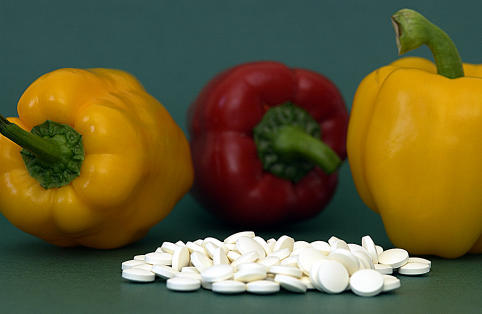
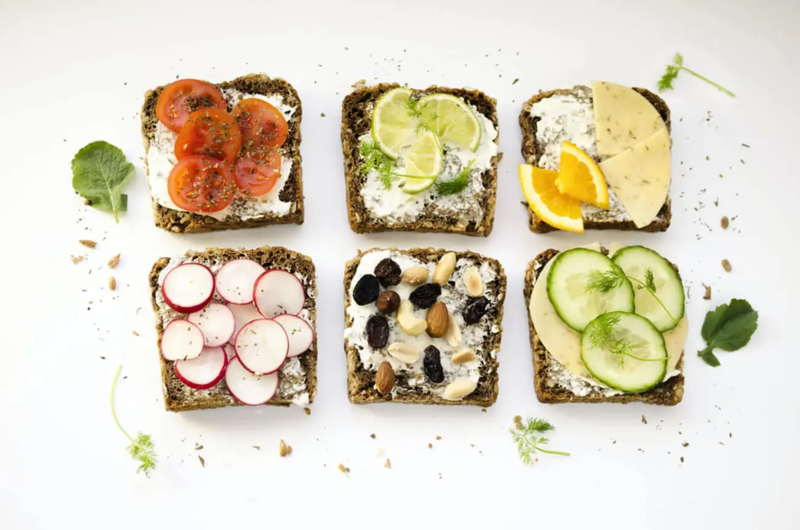

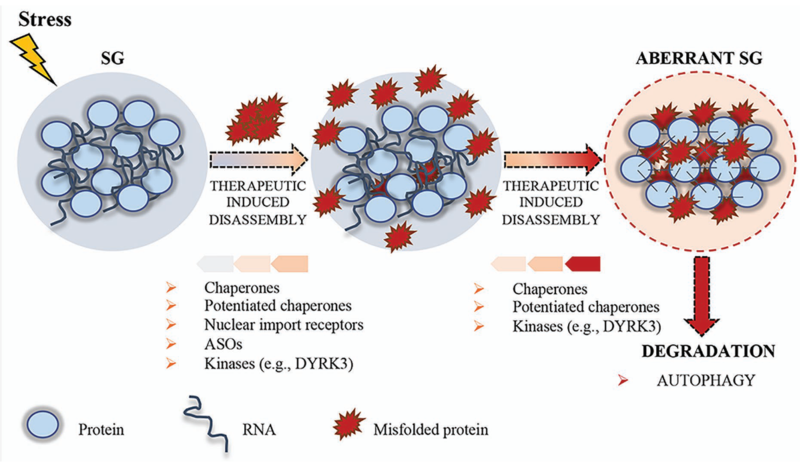
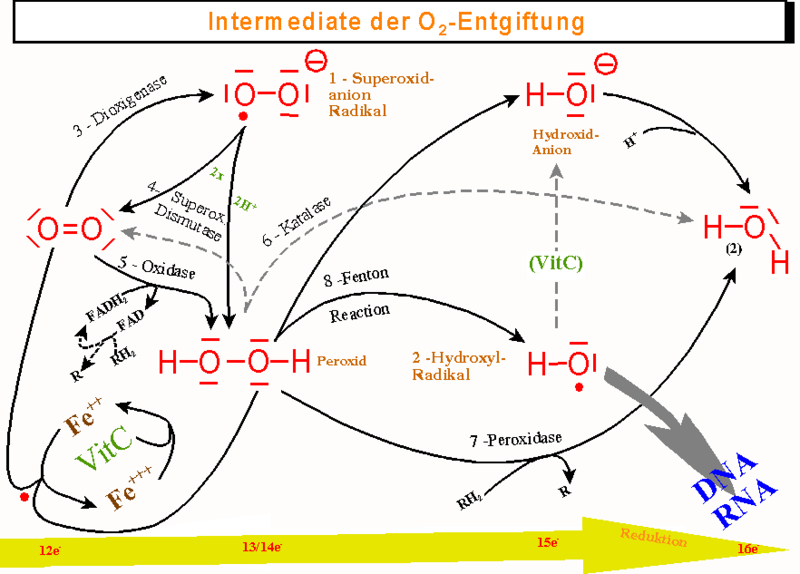

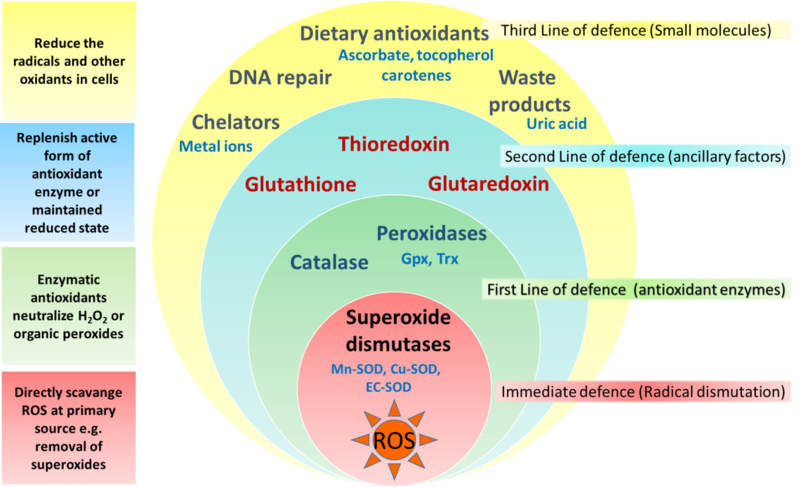

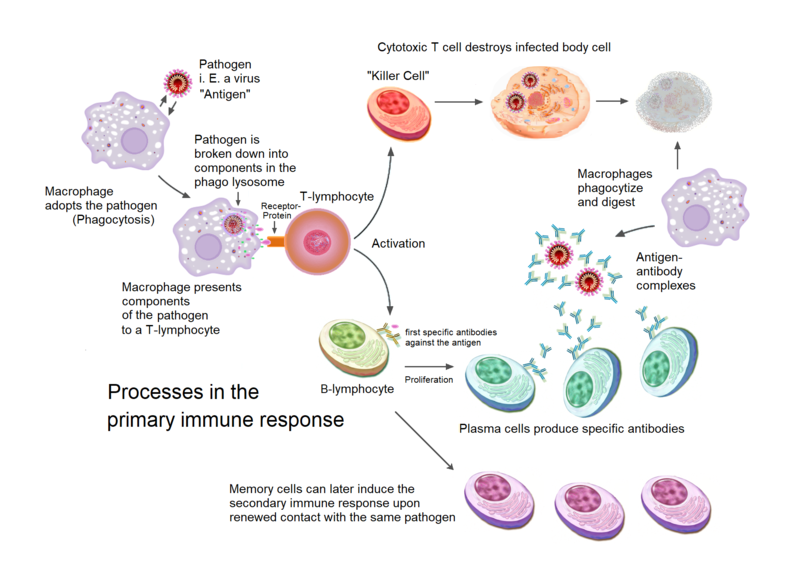
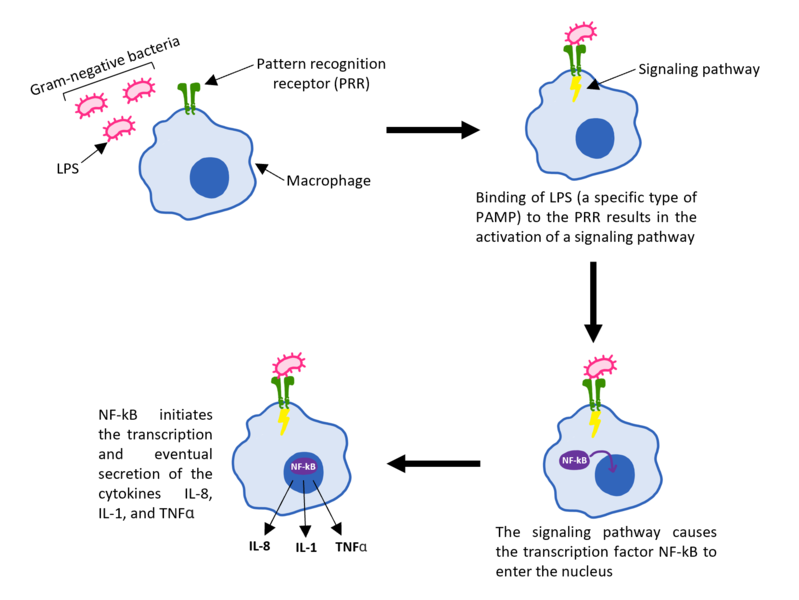
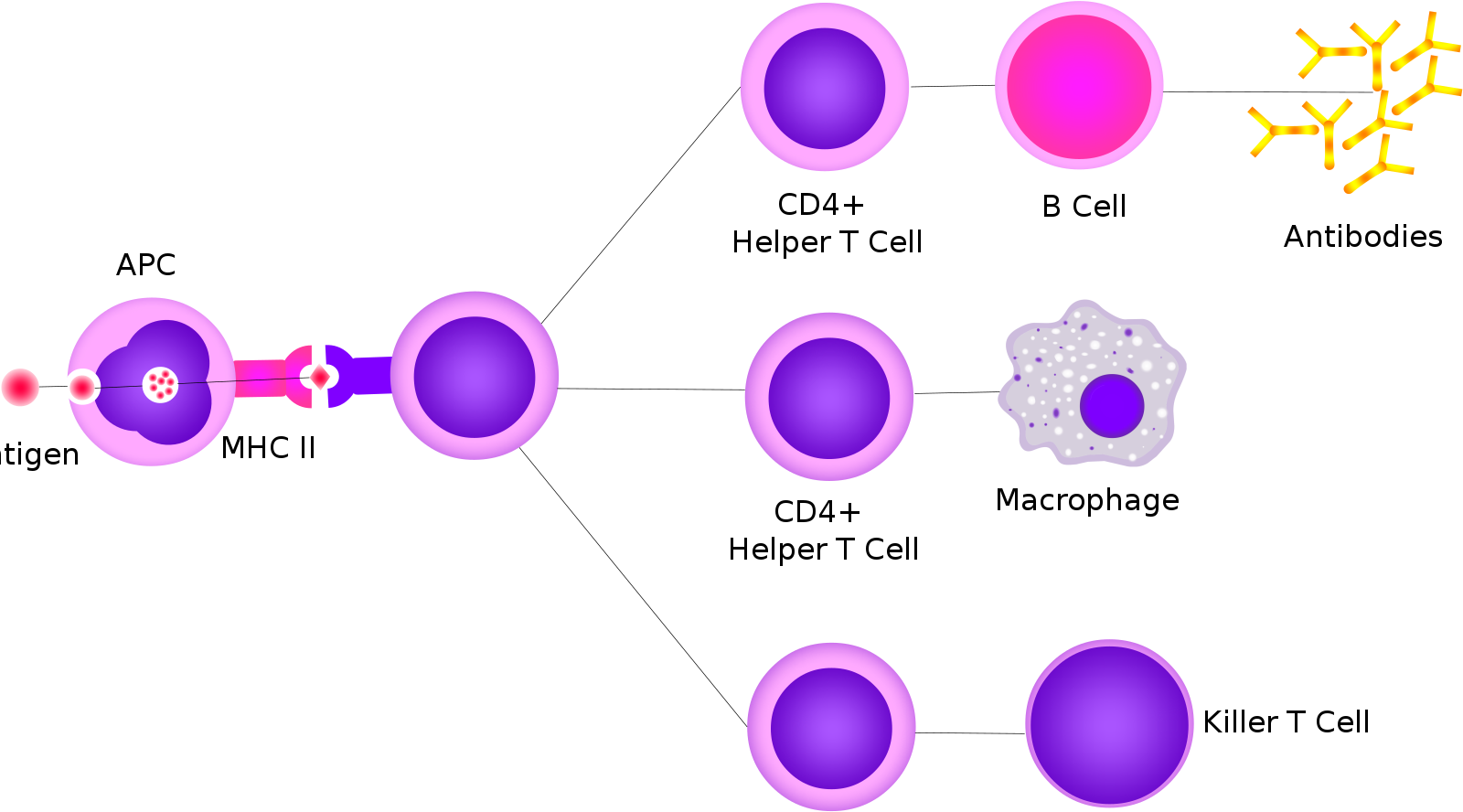
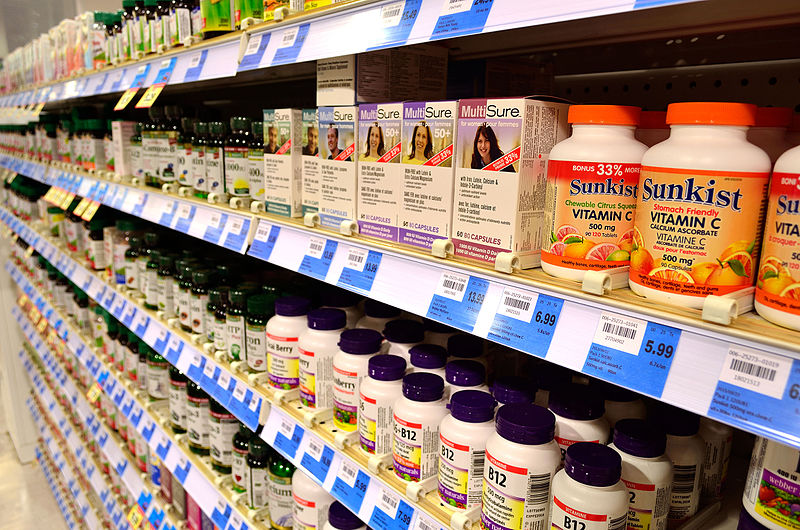
Where can I calculate the allowed vitamin C for my age and weight? How much vitamic C have the peppers in comparison to oranges? 😁
Greetings from Mexico
The references here will do justice to your question 😊
Thanks for nothing! 😁
@tipu curate
Upvoted 👌 (Mana: 0/18)
Thanks for your contribution to the STEMsocial community. Feel free to join us on discord to get to know the rest of us!
Please consider supporting our funding proposal, approving our witness (@stem.witness) or delegating to the @stemsocial account (for some ROI).
Please consider using the STEMsocial app
app and including @stemsocial as a beneficiary to get a stronger support.